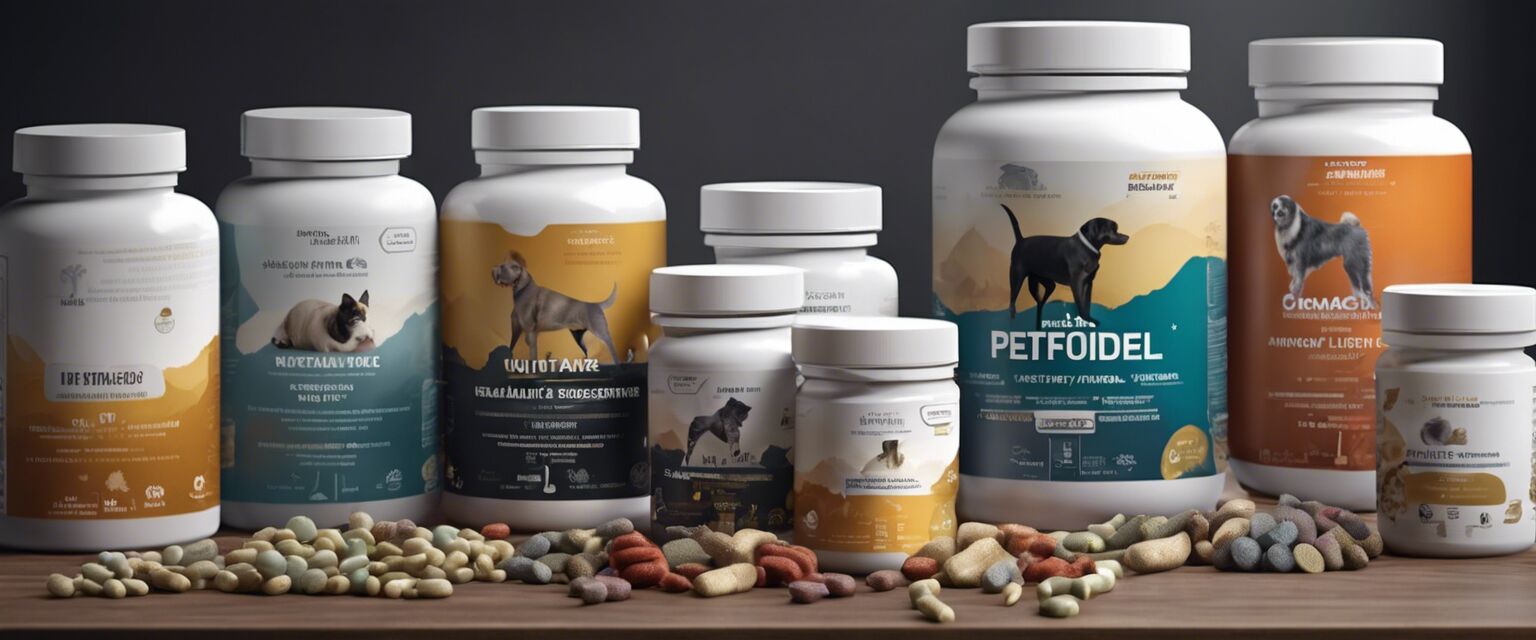
Pet Nutrition
Key Takeaways
- Understanding pet nutrition is vital for your pet's health.
- High-quality pet food can significantly affect your pet's energy and mood.
- Different pets have different nutritional needs based on their age and breed.
- Regularly consulting with a veterinarian can help ensure optimal nutrition.
Welcome to our comprehensive guide on pet nutrition! Here at ThePetHub, we believe that a well-fed pet is a happy pet. This article will explore the essential aspects of pet nutrition, including the types of food available, the importance of supplements, and tips for choosing the right diet for your furry family members.
Understanding pet nutrition
Pet nutrition involves providing the right balance of nutrients to ensure your pet stays healthy and active. Just like humans, pets require a variety of nutrients, including proteins, fats, carbohydrates, vitamins, and minerals. Let's delve deeper into these components.
| Nutrient | Function | Sources |
|---|---|---|
| Proteins | Builds and repairs tissues | Meat, fish, eggs |
| Fats | Provides energy and helps absorb vitamins | Fish oil, chicken fat |
| Carbohydrates | Provides energy and fiber | Grains, vegetables |
| Vitamins | Supports various bodily functions | Fruits, vegetables |
| Minerals | Supports bone health and metabolic functions | Meat, dairy, vegetables |
Types of pet food
Choosing the right type of pet food is crucial. Here are the main categories:
- Dry kibble: Convenient and cost-effective.
- Canned food: Higher moisture content, good for hydration.
- Raw diets: Involves raw meat and bones; requires careful handling.
- Home-cooked meals: Tailored to individual pet needs; requires research.
Comparing pet food options
| Pet Food Type | Pros | Cons |
|---|---|---|
| Dry kibble | Affordable, easy to store | Less moisture, may contain fillers |
| Canned food | Tasty, high moisture | More expensive, needs refrigeration |
| Raw diets | Natural, high protein | Risk of bacteria, requires careful prep |
| Home-cooked meals | Customizable, fresh ingredients | Time-consuming, may lack balance |
The role of supplements
Supplements can play an important role in your pet's diet, especially if they have specific health needs. Common supplements include:
- Omega-3 fatty acids for skin and coat health.
- Probiotics for digestive health.
- Joint supplements for older pets.
Choosing the right supplements
Consult your veterinarian for recommendations tailored to your pet's specific needs. It's important to choose high-quality supplements from reputable brands.
Tips for feeding your pet
Beginner's section
- Always read the ingredient list on pet food.
- Introduce new foods gradually to avoid digestive upset.
- Monitor your pet's weight and adjust portions accordingly.
- Keep fresh water available at all times.
Common pet nutrition myths
There are many misconceptions about pet nutrition. Here are a few common myths debunked:
- Myth: Dogs are carnivores.
- Fact: Dogs are omnivores and can digest a variety of foods.
- Myth: Cats only need meat.
- Fact: Cats also require certain nutrients from plant sources.
Conclusion
Understanding pet nutrition is crucial for maintaining your pet's health and well-being. By choosing the right food and supplements, you can ensure your furry friends lead long, happy lives. For more insights on pet care, check out our Pet Food page.
Pros
- Improved overall health and energy levels.
- Longer lifespan with proper nutrition.
- Healthier skin and coat.
Cons
- Potential for overfeeding leading to obesity.
- Misleading labels can make it hard to choose.
Additional resources
For further reading on pet care, visit our other pages:











